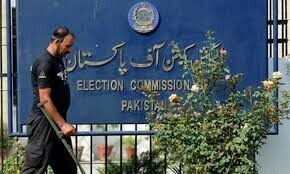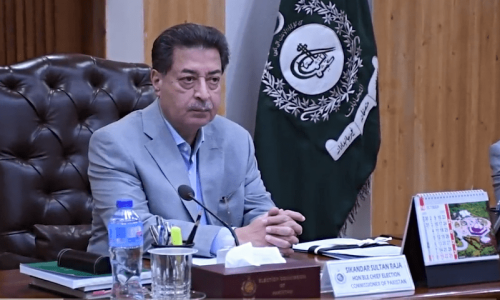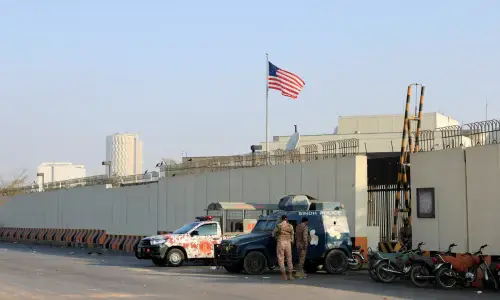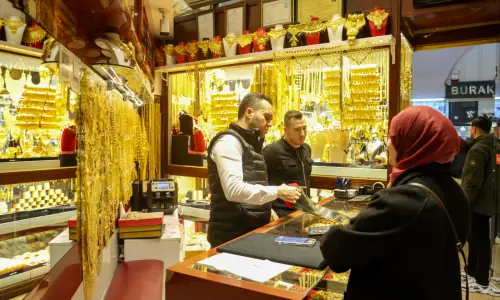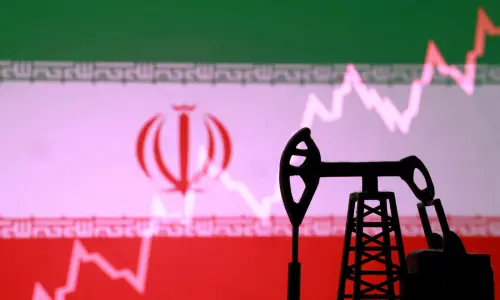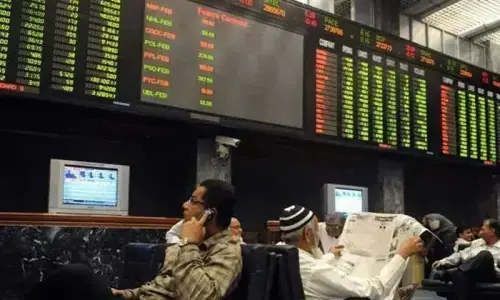• Overturns LHC ruling that handed victory to PTI-backed candidates in NA-79, NA-81 and NA-154
• Expresses concerns over RO’s admission that request for recount was denied due to ‘pressure’ from political workers
ISLAMABAD: In a move that will further affect numbers in the National Assembly, the Supreme Court on Monday upheld Election Commission of Pakistan (ECP) notifications declaring three PML-N candidates successful, overturning separate decisions of the Lahore High Court that had unseated them following recounts.
The members who will benefit from the majority judgement are Zulfikar Ahmed of NA-79 (Gujranwala), Azhar Qayyum Nahra of NA-81 (Gujranwala) and Abdul Rehman Khan Kanju of NA-154 (Lodhran).
The judgement set aside the high court orders, which had held that the ECP notification had erred in law while directing a recount of votes after the conclusion of consolidation proceedings, in violation of Section 95(6) of the Elections Act 2017.
Chief Justice of Pakistan (CJP) Qazi Faez Isa authored the majority judgement, whereas Justice Aqeel Ahmed Abbasi dissented by holding that the LHC judgements did not suffer from any factual error or legal infirmity, therefore do not require the interference of the Supreme Court.
The majority judgement emphasised that ECP was a constitutional body and its chairman and members were entitled to respect.
Unfortunately, in places, some LHC judges lost sight of this and passed derisive remarks, the CJP regretted, adding that every constitutional body and constitutional office holder and, in fact, everyone deserves courtesy and respect.
“Institutions gain in stature when they act respectfully,” he said.
In the Feb 8 elections, three independent candidates affiliated with the PTI were declared returned candidates from these three constituencies: Ehsanullah Virk from NA-79 (Gujranwala), Bilal Ejaz from NA-81 (Gujranwala) and Rana Faraz Noon from NA-154 (Lodhran).
But the PML-N candidates approached the ECP seeking a recount of votes. Consequently, the commission declared the PML-N candidates successful after recounting the votes.
Subsequently, the PTI-backed independent candidates challenged the ECP decision before the high court, which rejected the ECP notification and reinstated the independent candidates as members of the house.
The PML-N members then challenged the high court order before the apex court, which resulted in a split decision restoring the ECP ruling, after accepting the candidates’ appeals.
The majority judgment cited Section 95(5) of the Elections Act, which stipulates that when the margin of victory between the returned candidate and the runner-up was less than five percent of the total votes polled in the constituency — or eight thousand votes in the case of a National Assembly constituency and four thousand in the case of a provincial assembly constituency — the returning officer (RO) will recount the ballot papers of one or more polling stations if a request to challenge in writing was made before the commencement of consolidation proceedings.
It is an admitted position, the judgement said, that difference in the margin of victory between the returned candidates and the runners-up was less than the stipulated percentile/number.
It is also admitted in respect of three of the applications to recount ballot papers, which were submitted on Feb 9, 2024. However, the contesting respondents — the petitioners before LHC — contended that the consolidation proceedings had already commenced or concluded when the applications seeking recount of ballot papers were submitted. Thus, they challenged the recounting.
The Supreme Court also cited one of the RO’s reports from March 2, 2024, which was sought by ECP.
In it, the concerned official acknowledged receipt of an application for recount on Feb 9, 2024, but stated he could not undertake recount because of a huge number of political workers gathered outside his office, who had climbed the walls of the premises.
They also raised slogans and used abusive language and the law and order situation worsened. Therefore, he was unable to entertain the application and dismissed it.
The Supreme Court held that ROs cannot surrender their powers to mob rule, nor could forego their statutory duty to hold a recount.
“If this is accepted, it would create a very dangerous precedent and render the law regarding recounting meaningless by those resorting to lawlessness,” the majority judgment said, adding this would also deprive the candidate seeking recount of this statutory right/remedy.
The rights and remedies granted by the law cannot be negated, the judgement emphasised.
Moreover, the high court’s jurisdiction can only be invoked under Article 199 of the Constitution if a petitioner is an ‘aggrieved’ person, the judgment said, adding it was not understandable how anyone can be stated to be aggrieved if the ballot papers were recounted.
Grievances against the administrative/ministerial act of recounting ballot papers is also not envisaged in Article 199, the verdict said, adding that if the RO does not do an honest recount or does not do the recount in accordance with the law, then the affected party has remedies available to it.
The judgement said the LHC verdict cannot be sustained, therefore these petitions were converted into appeals and allowed by setting aside the high court judgments.
Meanwhile, in his dissenting note, Justice Aqeel Ahmed Abbasi argued that Section 95(6) reflected that the ECP can direct the ROs to recount ballot papers of one or more polling stations, but only before the conclusion of consolidation proceedings and not afterwards, as had been done in these cases.
Therefore, he held, the ECP acted without jurisdiction and lawful authority. He further said that the LHC did not entertain or decide any election dispute, nor was the apex court hearing appeals under Section 155 of the Elections Act, against any decision of the Election Tribunal.
Published in Dawn, August 13th, 2024


